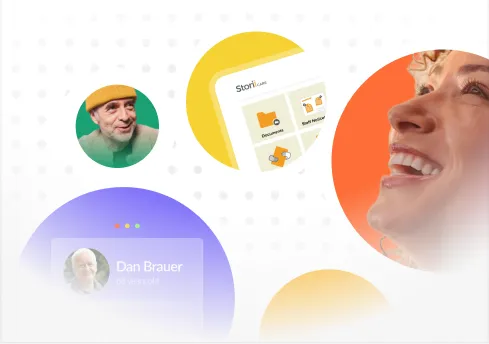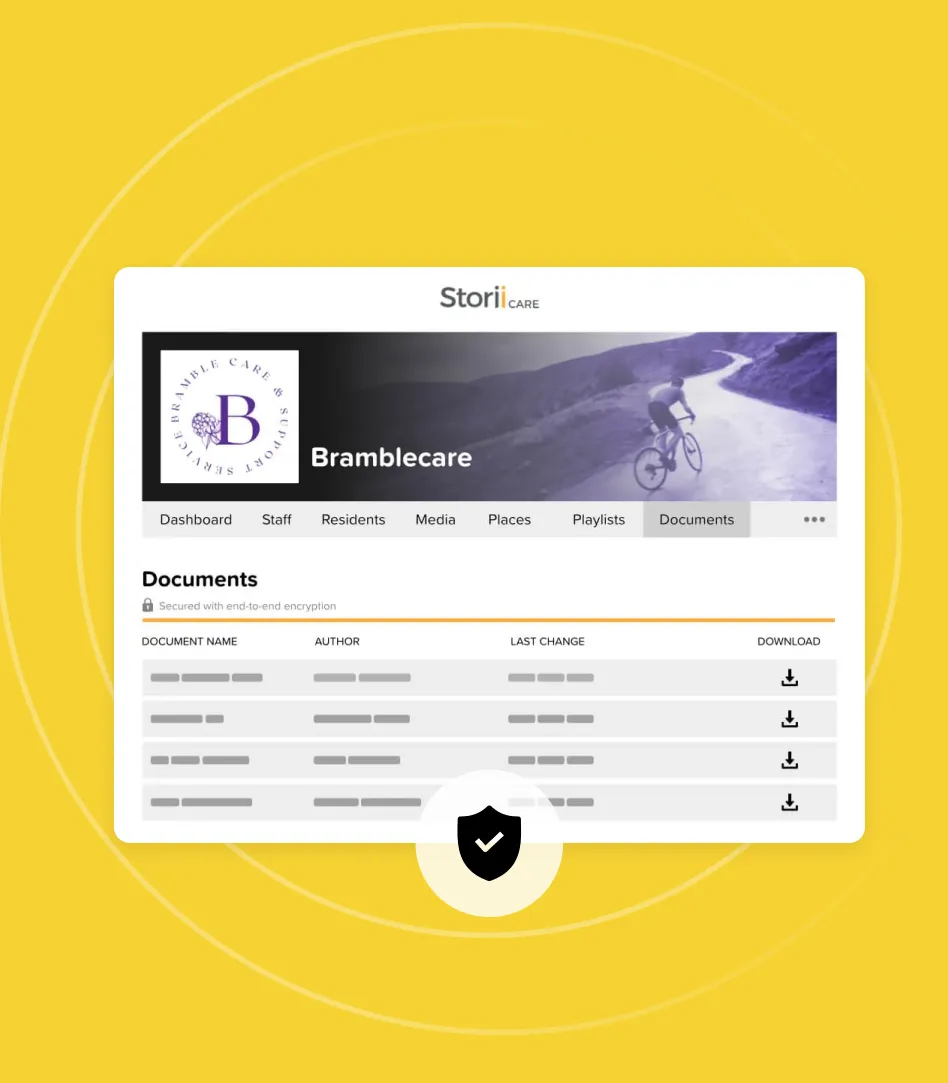5 casos de uso de IA apoiando idosos
A Inteligência Artificial (IA) está revolucionando muitos setores — e o atendimento a idosos não é exceção. À medida que a população global envelhece e a demanda por cuidados aumenta, a IA oferece soluções práticas que capacitam os idosos, apoiam os cuidadores e melhoram a qualidade de vida. Da detecção de quedas ao engajamento cognitivo, a IA está tornando o envelhecimento mais seguro, inteligente e conectado.
Neste blog, vamos explorar cinco casos de uso reais de IA para apoiar idosos e como a tecnologia está sendo cuidadosamente integrada aos ambientes de cuidado. Também veremos como as plataformas gostam História do iCare estão desempenhando um papel vital no apoio a essa mudança.
1. Detecção e prevenção de quedas
As quedas são uma grande preocupação para os idosos e uma das principais causas de lesões e hospitalização. Os sistemas de detecção de queda com inteligência artificial usam sensores, câmeras e aprendizado de máquina para identificar quando uma queda ocorre em tempo real. Alguns sistemas vão um passo além ao analisar as mudanças na postura ou na marcha para prever e prevenir quedas antes que elas aconteçam.
Exemplo de caso de uso:
Em uma residência para idosos, sensores de movimento alimentados por IA instalados nos quartos dos residentes alertam automaticamente a equipe se uma queda for detectada, reduzindo o tempo de resposta e melhorando os resultados de segurança.
Benefícios:
- Alertas em tempo real para cuidadores
- Custos de hospitalização reduzidos
- Identificação proativa de riscos
2. Monitoramento de saúde e alertas preditivos
A IA pode rastrear e analisar dados de dispositivos vestíveis, sistemas domésticos inteligentes e registros de saúde para monitorar sinais vitais, padrões de sono e rotinas diárias. Ao detectar desvios do comportamento típico, os sistemas de IA podem preveja possíveis problemas de saúde como infecções, desidratação ou problemas respiratórios — geralmente antes que os sintomas se tornem graves.
Exemplo de caso de uso:
Um adulto mais velho usa um smartwatch que monitora a frequência cardíaca e os níveis de oxigênio. Se o sistema de IA detectar padrões irregulares, ele envia uma notificação a um membro da família ou cuidador para acompanhamento.
Benefícios:
- Detecção precoce de problemas médicos
- Redução de visitas ao pronto-socorro
- Rastreamento contínuo e passivo da saúde
3. Gestão e adesão a medicamentos
Os idosos geralmente tomam vários medicamentos, facilitando a perda de doses ou a ingestão acidental da pílula errada. Aplicativos com inteligência artificial e dispensadores inteligentes de comprimidos ajudam a gerenciar cronogramas complexos de medicamentos enviando lembretes oportunos, monitorando a adesão e alertando os cuidadores se as doses forem perdidas.
Exemplo de caso de uso:
Um assistente de voz com IA integrada lembra o idoso quando tomar seus medicamentos e confirma verbalmente que ele o fez. Se nenhuma resposta for detectada, um cuidador é notificado para fazer o acompanhamento.
Benefícios:
- Adesão aprimorada à medicação
- Risco reduzido de eventos adversos a medicamentos
- Apoio à vida independente
4. Suporte cognitivo e engajamento
A IA também está sendo usada para apoiar a saúde mental e a cognição em idosos. Ferramentas interativas, como jogos baseados em IA, assistentes de voz e experiências de realidade virtual, podem envolver memória, linguagem e atenção. Essas ferramentas são especialmente valiosas para indivíduos com demência, doença de Alzheimer ou isolamento social.
Exemplo de caso de uso:
Um chatbot de IA mantém conversas simples, compartilha histórias e joga jogos de memória com adultos mais velhos, fornecendo estímulo mental diário e uma sensação de companheirismo.
Benefícios:
- Função cognitiva aprimorada
- Redução da solidão
- Rotinas personalizadas e envolventes
5. Planejamento e documentação de cuidados inteligentes
As ferramentas de IA estão simplificando as tarefas administrativas no atendimento a idosos, gerando planos de cuidados automatizados, documentando atividades diárias e analisando tendências na prestação de cuidados. Isso ajuda os prestadores de cuidados na prestação de cuidados atendimento mais centrado na pessoa e responsivo sem ficar atolado pela papelada.
Exemplo de caso de uso:
Uma casa de repouso residencial usa uma plataforma digital como História do iCare para registrar as tarefas diárias de cuidado. Os recursos baseados em IA ajudam a gerar relatórios, identificar lacunas no atendimento e ajustar os planos de suporte com base nas atividades e dados de engajamento dos residentes.
Benefícios:
- Carga de trabalho reduzida do cuidador
- Documentação consistente e de alta qualidade
- Conformidade regulatória e auditorias aprimoradas
Onde o StoriiCare se encaixa
Embora o StoriiCare possa não se rotular como uma plataforma de IA, ele integra recursos inteligentes que suportam muitos dos casos de uso listados acima. É um sistema digital de gerenciamento de cuidados desenvolvido para prestadores de cuidados de longo prazo, creches para adultos e provedores de vida assistida.
Veja como o StoriiCare se alinha ao suporte baseado em IA:
- Monitora atividades e tendências de saúde em tempo real
- Alerta a equipe sobre ações perdidas ou desvios na rotina
- Cria planos de cuidados dinâmicos e personalizados
- Envolve famílias por meio de um portal seguro com atualizações e fotos
- Apoia o bem-estar por meio de histórias de vida, trabalho, registros de engajamento e ferramentas de geração de relatórios
O StoriiCare ajuda os profissionais de saúde a usar os dados de forma significativa, apoiando decisões proativas e melhorando a vida das pessoas de quem cuidam.
O futuro da IA para idosos
À medida que a tecnologia continua avançando, a IA no atendimento a idosos se tornará ainda mais integrada e acessível. Podemos esperar desenvolvimentos como:
- Sistemas de IA com reconhecimento de emoções que detectam tristeza, ansiedade ou confusão
- Modelos preditivos para progressão de doenças crônicas
- Interfaces que priorizam a voz para usuários de baixa tecnologia
- Equipes de atendimento coordenadas por IA em ambientes médicos e de assistência social
Mas não importa o quão avançada a tecnologia se torne, seu sucesso depende de quão bem ela aprimora a humano aspectos do cuidado — compaixão, empatia e conexão.
Considerações finais
A IA não está aqui para substituir os cuidadores, está aqui para apoiá-los. Desde a prevenção de quedas até a personalização dos planos de cuidados, a inteligência artificial está abrindo novas e empolgantes possibilidades no atendimento a idosos. Com as ferramentas certas, os idosos podem viver vidas mais longas, seguras e gratificantes.
Plataformas como História do iCare estão ajudando os provedores a progredir combinando tecnologia intuitiva com valores centrados na pessoa, trazendo o futuro do cuidado para as comunidades atuais.
Saiba mais sobre o StoriiCare em www.storiicare.com e descubra como ele pode oferecer suporte a cuidados mais inteligentes e conectados para idosos.


.avif)

.png)

.png)










